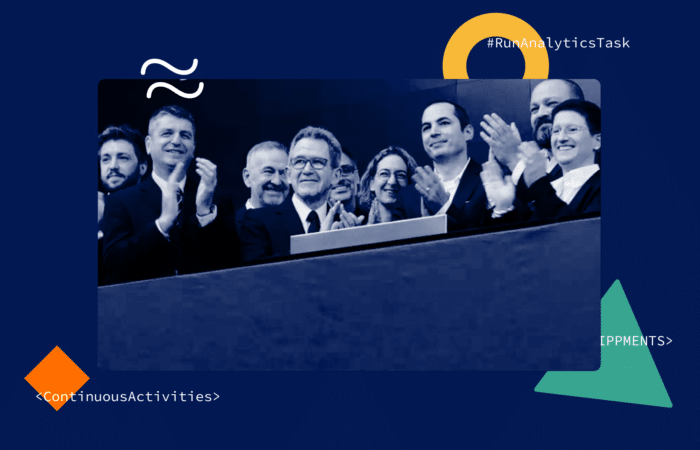Changing the maritime industry – as easy as riding a bike?

What’s inside?
Everyone has something they want to do but never did. It could be as small as learning how to play an instrument or as large as moving across the world and changing life paths. For me, it was somewhere in the middle – it was learning how to ride a bike.
While they say riding a bike is easy, this was never the case for me, and somehow, over the past 30 years, I got my feet wet in the ocean, but never placed them on two pedals.
This secret was one I hid well until the COVID-19 crisis came and forced me to acknowledge my lack of bike-riding skills.
As the world slowly entered lockdown this past April, one of the few things citizens could do was exercise outside. In a classic case of a teacher who couldn’t do what they taught, I took this time to teach my kids – aged 4 and 6, how to ride a bike. As my kids reveled in riding along the streets of our neighborhood with their mother, I masterfully changed the subject whenever they asked where my bike was.
This past September, as we faced a second lockdown, I realized that maybe now was the time to get on the horse, or more accurately – a bike.
Maybe it was the idea of another month without school or activities for the kids, or just the lack of mobility and need for exercise, but this time, I was determined to learn how to ride a bike. But how?
It dawned on me that these unprecedented times led to adopting new approaches, and so at the ‘old’ age of 36, I would have to put my pride aside, put my helmet on, and google ‘learning how to ride a bike as an adult.’
I will spare you the stories of me crashing (more than once) in front of strangers and my giggling kids, but I will tell you this – I faced the challenge and realized this old dog could, in fact, learn new tricks.
While I nursed my scrapes, I realized that this lesson was more than one about riding a bike. It was a learning opportunity I could take with me.
The maritime and trade business has seen an increased wave of regulations recently. These regulations closed previous loopholes, and now, shipowners, traders, oil majors, banks, and anyone with interaction in the trading process must change the level of due diligence they perform on every vessel they interact with. Regulators from the U.N., U.K., and U.S. now require validating every vessel, including their behavior and cargo origin, before doing business with them.
In addition to the changes in regulations, the FINCEN leaks proved that the due diligence required of banks is at a different sphere than before, and when not applied, it directly influences stock prices. Major banks, including HSBC, Deutsche Bank, and Standard Chartered took a 3%-7% hit on their stock prices immediately following FINCEN leaks, reflecting this.
When you think about it, it makes total sense that we should know who we do business with. Transparency has been common practice in many industries for decades, so why not maritime? Like me, it was probably a combination of ego and old habits.
The second lockdown pushed me in the right direction and gave me the courage to change my ways, so why can’t the regulations do the same for the trade and maritime industry? The truth is, they can. The new regulations should not be viewed as a hindrance to the industry, but as the push that will lead the maritime industry to evolve and embrace modern ways of doing business.
Change is inevitable; the question is how to implement it?
The new way of doing business will necessitate the industry to evolve, adapt, and embrace new approaches. This will ultimately enhance all stakeholders involved in the maritime industry, from ship owners to commodity traders to banks to name a few, as they will all need to adopt A.I. to scale compliance and KYV (Know Your Vessel) to automate due-diligence. Most importantly, they will need to let go of their pride and learn new tricks.
If a 36-year-old can learn how to ride a bike, an organization can learn how to adapt A.I., digitalize processes, and change operational methods. With a little willingness to learn, we may discover that changing the maritime industry is, in fact, as easy as riding a bike.










